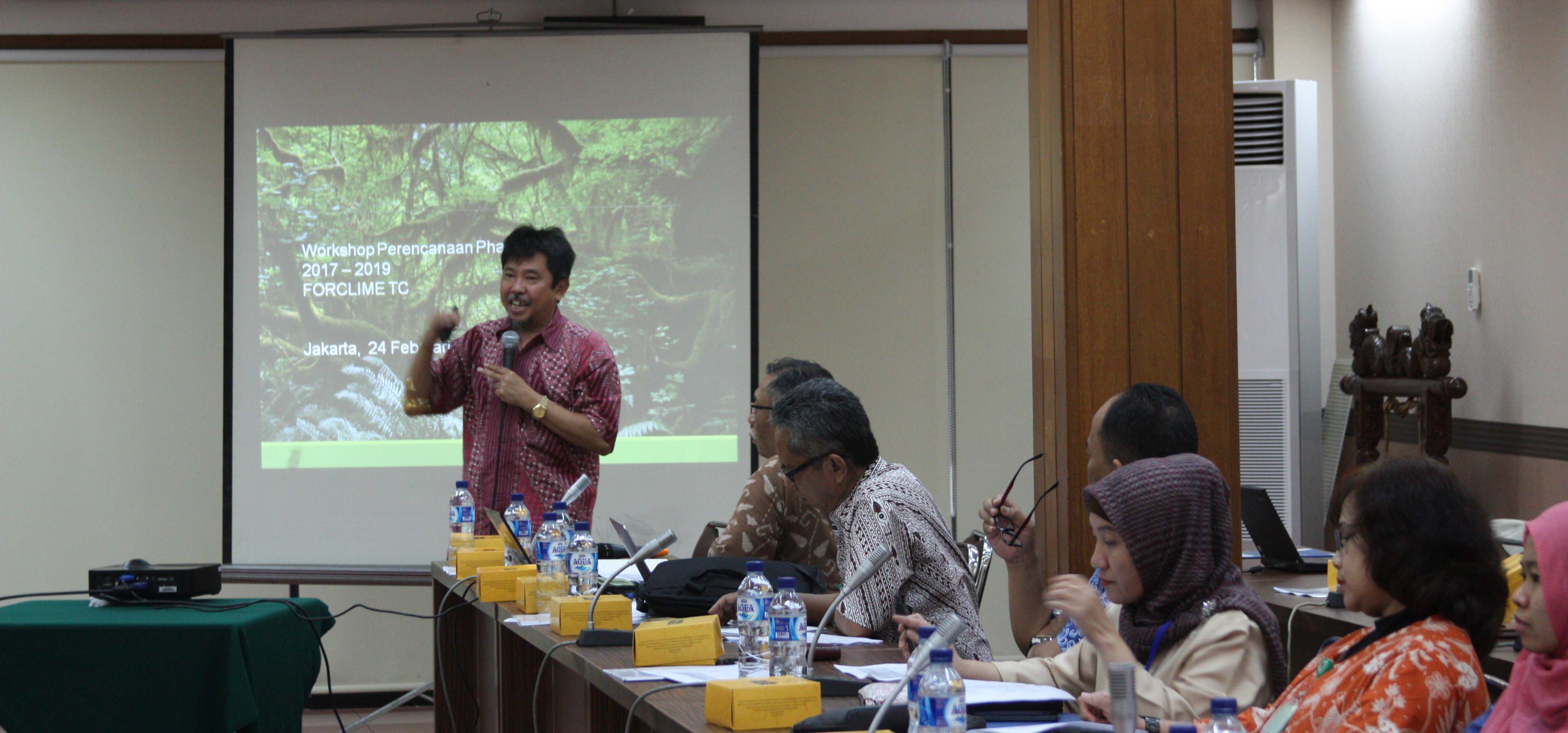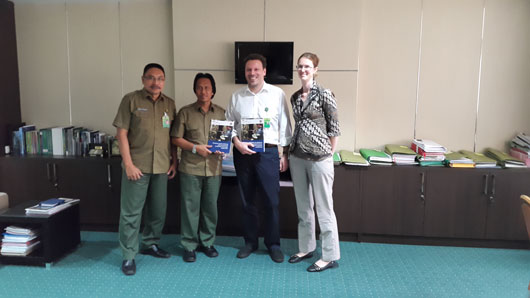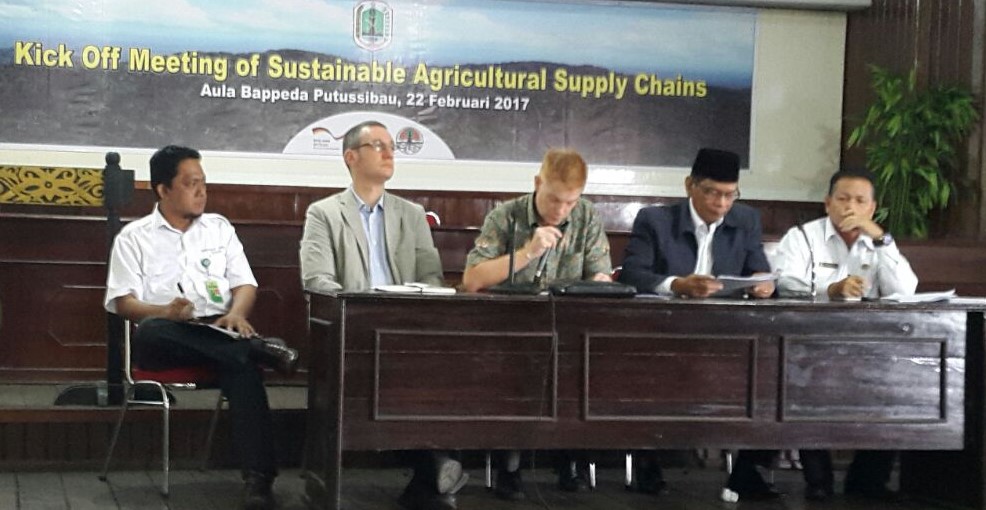FORCLIME
Forests and Climate Change ProgrammeTechnical Cooperation (TC Module)

Select your language

FORCLIME Technical Cooperation held a meeting to finalize its strategic work plan for 2017 – 2019 on 24 February 2017 at the Ministry of Environment and Forestry (MoEF) premises in Jakarta. This was the final step of a planning process which started on 24 December 2016 in Jakarta. The meeting socialized the FORCLIME workplan for 2017 – 2019, which has accomodated the results of consultation meetings in three pilot provinces of FORCLIME, chaired by the Head of Planning Bureau of MoEF as Project Executing Agency (PEA). 35 participants representing echelon 1 of the Ministry and the provincial partner agencies participated.
In his speech, the Head of Planning Bureau as the PEA, Helmi Basalamah, expected closer cooperation with partners or focal points at each related echelon in order to enable FORCLIME to support the ministry to achieve its targets.
For further information, please contact:
Pipin Permadi, Senior Adviser/National Coordinator
Mohamad Rayan, Advisor Crosscuttng Issues and Conflict Management

Since 2015, FORCLIME had supported the Directorate for Forest Resources Inventory and Monitoring (IPSDH) of the Ministry of Environment and Forestry (MoEF) in reviewing and revising the technical guideline for FMU (KPH) forest inventories. Over the course of almost 2 years, with various Focus Group Discussions (FGDs), workshops and trainings with participation of FMUs, MoEF’s regional technical implementation units (BPKHs) and universities, FORCLIME has developed a minimum standard document. The minimum standard served as advisory input for IPSDH’s revised technical guideline of forest inventories in protection and production FMUs (Perdirjen PKTL No. 1/2017). The publication ‘Definition of a minimum standard for forest management inventories on KPH level’ provides key stakeholders of forest inventories and FMU management with the complete multifaceted aspects of forest management inventories and gives recommendations on methodology, design and implementation.
For more information, please contact:
Tobias Goedde, Strategic Area Manager for Sustainable Forest Management (SFM)

The District Government of Kapuas Hulu, West Kalimantan supported by GIZ on behalf of the German Ministry of Economic Cooperation and Development (BMZ) launched a new initiative on a jurisdictional sustainable agro-commodities supply chain development in the district on 22 February in Kapuas Hulu. The purpose of activities is to identify and address the critical risks to sustainability in Kapuas Hulu. Sustainable supply chains ensure that in a pre-defined area the sustainable production of agricultural commodities does not negatively affect forests and other valuable ecosystems neither in scale nor in quality.
The Assistant 3 of the Kapuas Hulu regency, M. Yusuf, said: “We look forward to the sustainable supply chain initiative to increase the capacities of local government and local communities and to promote products of Kapuas Hulu and ease the access to international market”.
The initiative is supported by the German Sector programme on sustainable agricultural supply chains and standards in cooperation with the Indonesian-German Forest and Climate Change Programme (FORCLIME) with long standing relations over 8 years with the district.
Along with this kick off workshop the newly established conflict resolution desk of the district was launched. The Dinas Pemberdayakan Masyarakat dan Desa serves as a secretariat. 24 officers of the conflict resolution desk will be trained in conflict resolution by GIZ and the NGO Working Group Tenure (WG-T) to be one part of the jurisdictional sustainable supply-chain initiative.
For more information, please contact:
Georg Buchholz, Programme Director of FORCLIME


